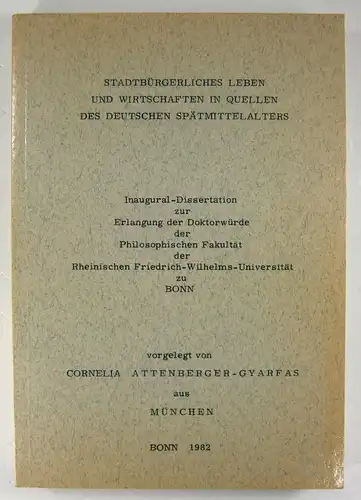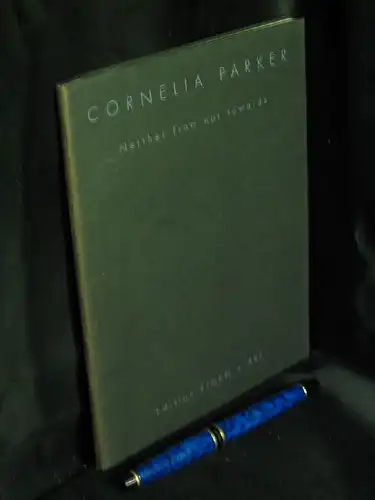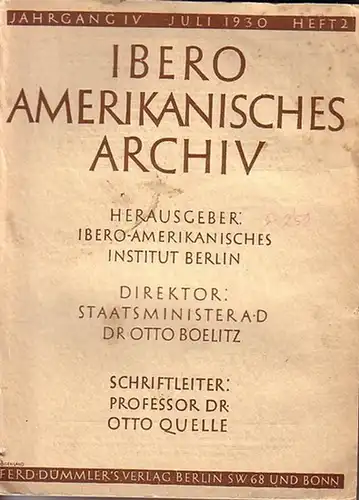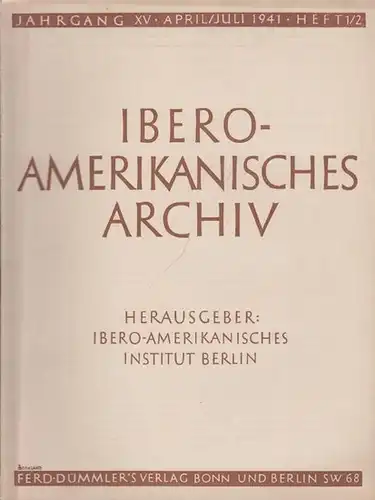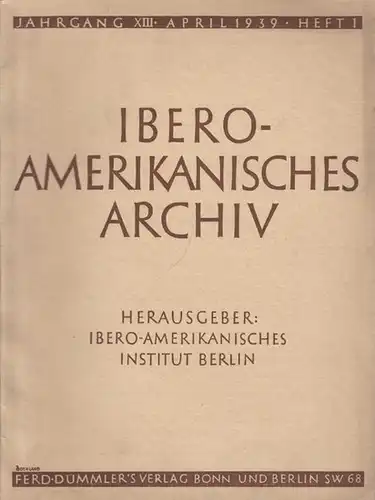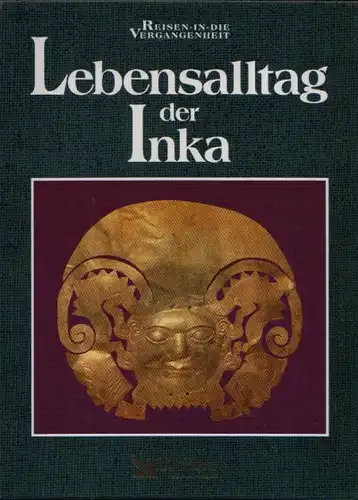Huber & Co., Frauenfeld-Leipzig, deutsche 1925, 229 Seiten mit 2 Bildern. Gebunden Leinen.
seine Witwe schreibt über das Leben von "Carleton Hubbell Parker was an American economist and labor conciliator. Carleton Hubbell Parker was born on March 31, 1878 in Red Bluff, Tehama County, California, United States. He was the son of William Boyd and Frances (Fairchild) Parker. He grew up in Vacaville, California. Carleton Hubbell Parke attended public school in Vacaville, California. Between 1896 and 1913 he studied at the universities of California (Bachelor of Science, 1904), London, Harvard, Leipzig, Berlin, Heidelberg (Ph. D. , Summa cum laude, 1912), and Munich. Early interested in engineering and mining, he later became absorbed in economics, and attended the seminars of Alfred Weber, Eberhard Gothein, and Lujo Brentano. His studies were repeatedly interrupted by the need to earn a living. Carleton Hubbell Parker worked as miner in California and British Columbia, newspaper reporter in Spokane, Washington, administrative officer in the University of California, and bond salesman in Seattle, Washington. In 1913 he became assistant professor of industrial economics in the University of California, and in 1917 head of the department of economics and dean of the College of Commerce at the University of Washington. While in Germany, Parker became interested in the problem of conflict between employers and labor and he later specialized in the study of casual or migratory workers. He sought in psychological maladjustment an explanation for the militant tactics of the I. W. W. and migratory labor in general, and in his psychological analysis of the discontented worker borrowed from such diverse sources as the psychoanalytic school, the behaviorists, Dewey, Veblen, McDougall, and Adler. His principal writings were "The California Casual and His Revolt", and "The I. W. W. " These papers are included in The Casual Laborer and Other Essays (1920). His doctoral dissertation on the labor policy of the American trust, completed in 1914, was not published, owing to the interruption of communications with the Heidelberg authorities. In November 1913, while retaining his connection with the University of California, Parker became executive secretary of the California State Immigration and Housing Commission. The salary of $4, 000 represented his first financial success, but he resigned the post after a year, feeling that political influences were hampering his work. It was while he held this post that he made his report on the Wheatland hopfield riot of August 3, 1913, a report which became a model for many investigators of labor militancy. Late in 1914 he conducted a similar investigation for the United States government in Phoenix, Arizona. During the World War, he served repeatedly as United States government labor conciliator. During the World War, he served repeatedly as United States government labor conciliator and succeeded in preventing or terminating more than a score of important strikes. On October 1917, his analysis of the rise in living costs was adopted by the Shipbuilding Labor Adjustment Board of the United States Fleet Corporation as the basis of awards in Pacific shipyards. The main factors in his success as a labor conciliator were an intimate practical knowledge of the migratory worker gained during his youth, conviction of his own disinterestedness, and a rare personal charm which disarmed all but the most uncompromising. He was for a time an outstanding practitioner of a method hailed by many as a contribution toward the definitive allaying of labor "unrest. " He dealt with specific cases rather than with general principles and his technique was that of compromise. He tried to teach employers to make concessions (shorter hours, better living quarters, opportunities for recreation, etc. ), while teaching workers to abjure militant tactics and to be content with limited gains. He skilfully utilized the stirring appeal lent by the war situation to such phrases as "the public interest, " and in effect gave an American translation of the "civil peace" doctrine and practice which his German teachers had developed out of their older policies of social reform. His work was a striking illustration of the role of the academic expert in public affairs, a wartime development which excited much interest among younger progressive political thinkers and is part of the background of subsequent developments in personnel management and "welfare capitalism" in general. During the last months of his life he began to speak in terms of a subordinate and an upper class, and to raise the question of a new economic order as opposed to the patching of "a rotten system. " His analysis of the key-problem of the state, however, never transcended condemnation of the thieving, vulgar, stupid, or "standpat" politician, and death prevented a flexible and inquiring mind from pushing its investigations further. At the height of his career he contracted pneumonia and died after a brief illness on March 17, 1918. His body was cremated and the ashes scattered on the waters of Puget Sound." (prabook.com/web/carleton.parker)/3769702.
Zustand
guter Zustand, geringe Gebrauchs- und Alterungsspuren: Einband teils leicht verschmutzt - Seitenschnitt stockfleckig - Seiten überwiegend sauber und ordentlich, gelegentlich gering stockfleckig, die ersten und letzten 4 Blatt etwas stärker - Seiten teils etwas eselsohrig
Details zum Artikel
Titel:
Ein amerikanisches Idyll
Das Leben Carleton H. Parkers
Auflage:
Erstausgabe
Verlagsname:
Huber & Co., Frauenfeld-Leipzig
Jahr:
deutsche 1925
Seitenanzahl:
229 Seiten mit 2 Bildern
Einband:
Gebunden Leinen
Bemerkung:
seine Witwe schreibt über das Leben von "Carleton Hubbell Parker was an American economist and labor conciliator. Carleton Hubbell Parker was born on March 31, 1878 in Red Bluff, Tehama County, California, United States. He was the son of William Boyd and Frances (Fairchild) Parker. He grew up in Vacaville, California. Carleton Hubbell Parke attended public school in Vacaville, California. Between 1896 and 1913 he studied at the universities of California (Bachelor of Science, 1904), London, Harvard, Leipzig, Berlin, Heidelberg (Ph. D. , Summa cum laude, 1912), and Munich. Early interested in engineering and mining, he later became absorbed in economics, and attended the seminars of Alfred Weber, Eberhard Gothein, and Lujo Brentano. His studies were repeatedly interrupted by the need to earn a living. Carleton Hubbell Parker worked as miner in California and British Columbia, newspaper reporter in Spokane, Washington, administrative officer in the University of California, and bond salesman in Seattle, Washington. In 1913 he became assistant professor of industrial economics in the University of California, and in 1917 head of the department of economics and dean of the College of Commerce at the University of Washington. While in Germany, Parker became interested in the problem of conflict between employers and labor and he later specialized in the study of casual or migratory workers. He sought in psychological maladjustment an explanation for the militant tactics of the I. W. W. and migratory labor in general, and in his psychological analysis of the discontented worker borrowed from such diverse sources as the psychoanalytic school, the behaviorists, Dewey, Veblen, McDougall, and Adler. His principal writings were "The California Casual and His Revolt", and "The I. W. W. " These papers are included in The Casual Laborer and Other Essays (1920). His doctoral dissertation on the labor policy of the American trust, completed in 1914, was not published, owing to the interruption of communications with the Heidelberg authorities. In November 1913, while retaining his connection with the University of California, Parker became executive secretary of the California State Immigration and Housing Commission. The salary of $4, 000 represented his first financial success, but he resigned the post after a year, feeling that political influences were hampering his work. It was while he held this post that he made his report on the Wheatland hopfield riot of August 3, 1913, a report which became a model for many investigators of labor militancy. Late in 1914 he conducted a similar investigation for the United States government in Phoenix, Arizona. During the World War, he served repeatedly as United States government labor conciliator. During the World War, he served repeatedly as United States government labor conciliator and succeeded in preventing or terminating more than a score of important strikes. On October 1917, his analysis of the rise in living costs was adopted by the Shipbuilding Labor Adjustment Board of the United States Fleet Corporation as the basis of awards in Pacific shipyards. The main factors in his success as a labor conciliator were an intimate practical knowledge of the migratory worker gained during his youth, conviction of his own disinterestedness, and a rare personal charm which disarmed all but the most uncompromising. He was for a time an outstanding practitioner of a method hailed by many as a contribution toward the definitive allaying of labor "unrest. " He dealt with specific cases rather than with general principles and his technique was that of compromise. He tried to teach employers to make concessions (shorter hours, better living quarters, opportunities for recreation, etc. ), while teaching workers to abjure militant tactics and to be content with limited gains. He skilfully utilized the stirring appeal lent by the war situation to such phrases as "the public interest, " and in effect gave an American translation of the "civil peace" doctrine and practice which his German teachers had developed out of their older policies of social reform. His work was a striking illustration of the role of the academic expert in public affairs, a wartime development which excited much interest among younger progressive political thinkers and is part of the background of subsequent developments in personnel management and "welfare capitalism" in general. During the last months of his life he began to speak in terms of a subordinate and an upper class, and to raise the question of a new economic order as opposed to the patching of "a rotten system. " His analysis of the key-problem of the state, however, never transcended condemnation of the thieving, vulgar, stupid, or "standpat" politician, and death prevented a flexible and inquiring mind from pushing its investigations further. At the height of his career he contracted pneumonia and died after a brief illness on March 17, 1918. His body was cremated and the ashes scattered on the waters of Puget Sound." (prabook.com/web/carleton.parker)/3769702
Produktart:
Buch
Sprache:
Deutsch
Länge x Breite:
18.5 cm x 12.5 cm
